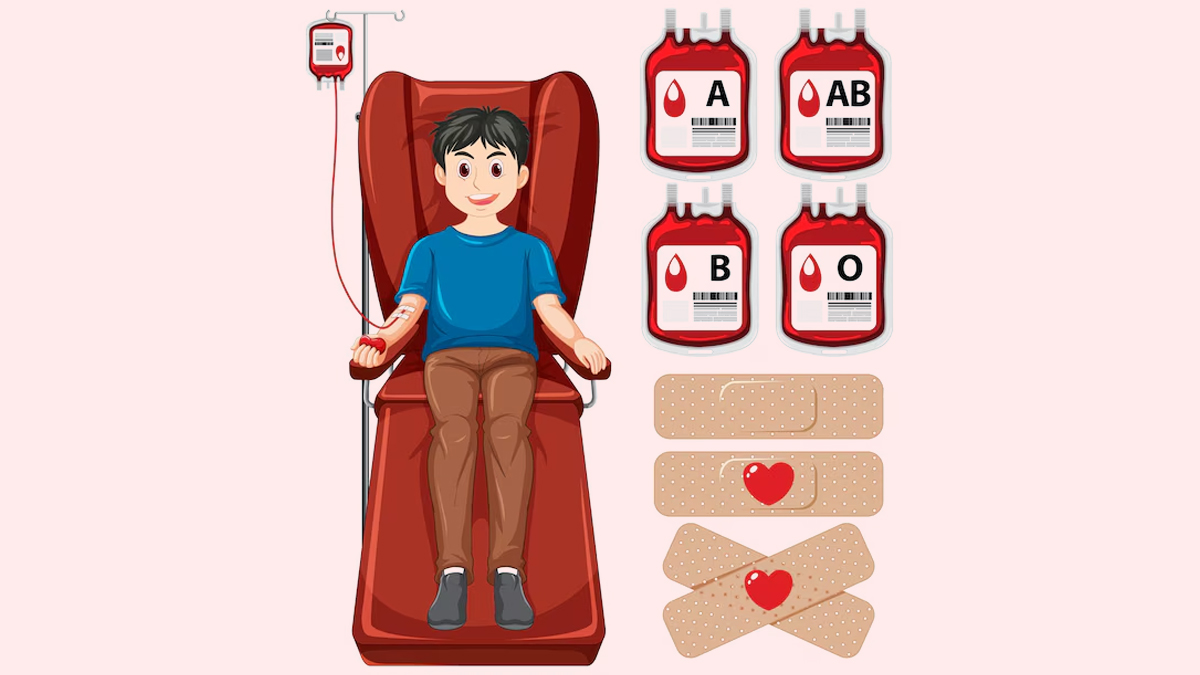-1751030992740.webp)
Blood donation saves lives and is an act of incredible selflessness on the part of the donor, especially if done voluntarily. According to the WHO, about 12 crore blood donations are collected worldwide. A single blood donation can save up to three lives. Apart from being a noble act, blood donation has added incentives that are often overlooked. Thought of just as a potentially life-saving act for the recipient, it may even end up saving the donor’s life. Let us understand how:
Table of Content:-
Blood Transfusion Is A Complicated Process

When people, especially those who have never donated blood, think about the process of blood transfusion, they imagine a nurse hanging the blood bags at the bedside while the blood transfuses from the donor to the recipient. However, the actual process is a carefully orchestrated and systematic one. In India, approximately 12 million units of blood are required annually. Meeting this demand safely and efficiently requires a robust system in place, and at the very core of that machinery are the blood donors.
Also Read: Blood Donation: Myths Debunked and Benefits Explained
Donors Are Tested
Even before a single drop of blood is collected, the donor goes through a series of tests to determine whether they are fit for donation and also whether they might be carrying any infections or disease.
Pre-donation Counselling
To begin with, medical professionals provide a detailed brief to the donor about the whole process, answer any doubts or questions, and make sure they are comfortable and willing to go forward with the donation.
Determining Eligibility
Only people in ‘good health’ are eligible for donation. ‘Good health’ is a subjective term and might differ from one individual to another; however, a few key parameters are looked at before allowing a person to donate blood. Staff undertaking donor health and risk assessment should be well-trained in the observation of donor appearance and detection of signs of ill health. Staff should receive explicit guidance on what to look for and when to refer a donor to a healthcare professional for further medical attention. “The age of the donor is an important factor as well in evaluating eligibility for blood donation. In most countries, you must be at least 18 years old to give blood. This criterion ensures that donors are of legal age and capable of making an educated decision about their health,” said Dr Sangeetha Gayam, Head of Department of Transfusion Medicine, Citizens Speciality Hospital, Hyderabad.
Also Read: Is It Possible To Develop Anaemia From Blood Donation?
Testing for Diseases and Conditions
The expert adds that there are a few guidelines every hospital must follow before using the donated blood. So, after a willing donor is deemed eligible for transfusion and the blood is collected, each sample must go through rigorous testing to make sure it does not carry an infection or a disease. Technicians screen the blood samples for HIV, Hepatitis B and C using chemiluminescence or EIA-based tests. Along with that, they test for malaria and syphilis. They use Nucleic Acid Amplification Testing (NAT) on around 15–20% of units, which detects infections much earlier—during the “window period," and enhances overall safety. Even if there is the slightest chance of a disease being present in the donor’s blood, the process ensures it comes to light.
Bottomline
Blood donation is a gift that goes far beyond saving another life—it can be a turning point for the donor too. With rigorous testing and proper care, the process not only safeguards recipients but also empowers donors to take charge of their own health.
Also watch this video
How we keep this article up to date:
We work with experts and keep a close eye on the latest in health and wellness. Whenever there is a new research or helpful information, we update our articles with accurate and useful advice.
Current Version
